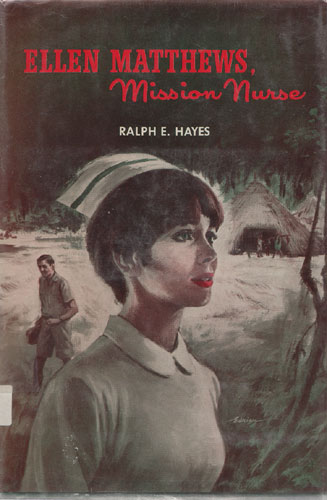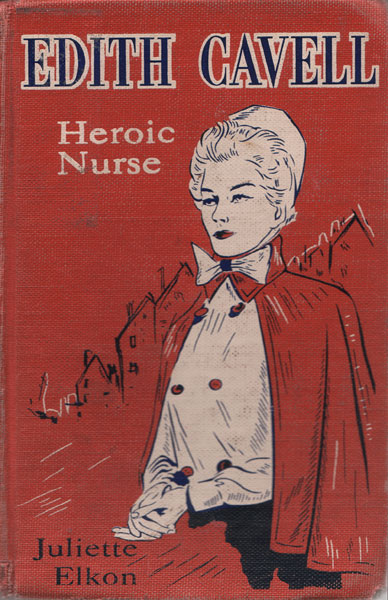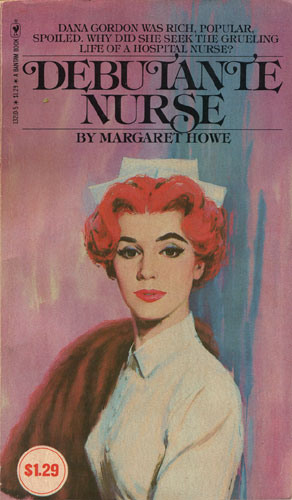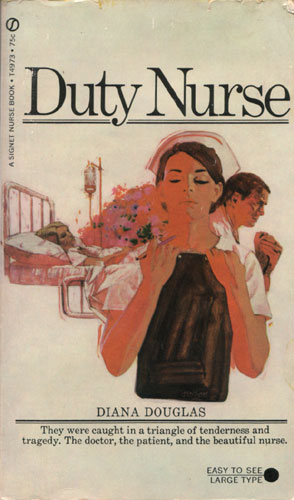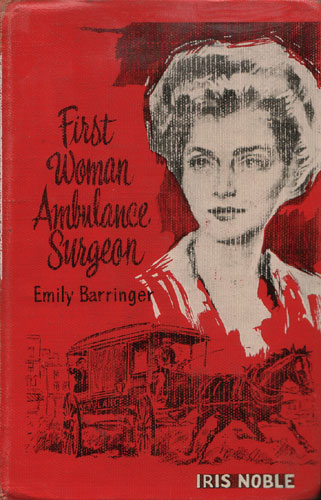
Eight-year-old Emily crouched on the broad stairway just below the second floor landing. From there she could peer over that top step and look down the hallway to Mama’s bedroom. As the door opened or closed, as the nurse darted in and out, there was a thin, wavering streak of lamplight which lighted up the hall carpet or filtered into dim shadows as the door half closed again. Sounds came from behind it — a stifled cry, now and then, from Mama, or the rustle of the nurse’s skirts, or a few soft words in Lil’s Irish brogue.
Most important of all, it seemed to Emily, was the deeper, heavier voice of Dr. Burchard. When he spoke, things happened. The nurse would say “Yes, Doctor” or Lil would come flying out and run downstairs to the kitchen for kettles of hot water.
What was happening? It was all very strange. It was frightening, because Mama was sick. That much Emily knew.
Lil was their old nursemaid, yet she had seen Emily on the steps and said nothing about bedtime. No one had paid any attention to the younger children either, and for the first time in her small life Emily had done a grownup’s job. An hour ago she had seen to it that Margaret and Amy and Harry had brushed their teeth and said their prayers and were safe in bed. She looked for Will, her older brother, but couldn’t find him; she was lonely and frightened and couldn’t sleep — and the stairway was as close as she dared come to Mama.
An instinct told her that she would not be allowed in Mama’s bedroom, but an even stronger instinct kept her where she was, within sight and hearing.
The doorbell sounded down below. Emily waited a second for a maid to answer it before she remembered that there were no maids or butler any more, only Lil upstairs and Cook down in the kitchen. Lil came hurrying past her, went down and opened the door to admit another man in a dark frock coat and a big, soft leather bag.
“I’m Dr. William Lusk,” she heard him say. “Dr. Burchard is expecting me. I understand it’s a difficult birth and he thinks I may have to operate.” He was following Lil up the steps as he spoke and Lil was answering: “Yes, Doctor, yes. Ah, the poor darling — my poor, beautiful mistress.”
He went into the bedroom, too, and now the door was closed tightly and there was no lamplight at all in the hallway. Still Emily stayed where she was. Perhaps she dozed a little because she was suddenly startled to find Lil bending over her, shaking her and saying:
“Emily! Child, would you be after helping me this once?” Her voice held it usual kindness but she wasn’t smiling. “I do need you. I can’t be leaving them upstairs, with the doctors wanting something from me every blessed minute. And it’s fearful I am of leaving your mother. She’s quieter, someways, when I’m in the room.”
“What do you want me to do?” asked Emily. “Let me do something.”
The middle-aged woman, who had been nursemaid as long as Emily could remember, handed her the slip of paper. “I want you to go down the street to Haas’s pharmacy and ask them to give you these medicines written on the piece of paper. Do hurry, there’s a dear child. The doctors are wanting these special like.” She stooped and kissed the soft, babyish cheek and walked away with quick steps to Mama’s bedroom.
“But — Lil –” Emily was so astounded she could not believe it. She had always been a very protected and sheltered little girl. She never was allowed to go anywhere on her own.
“Hurry, child!” the nursemaid called over her shoulder.
